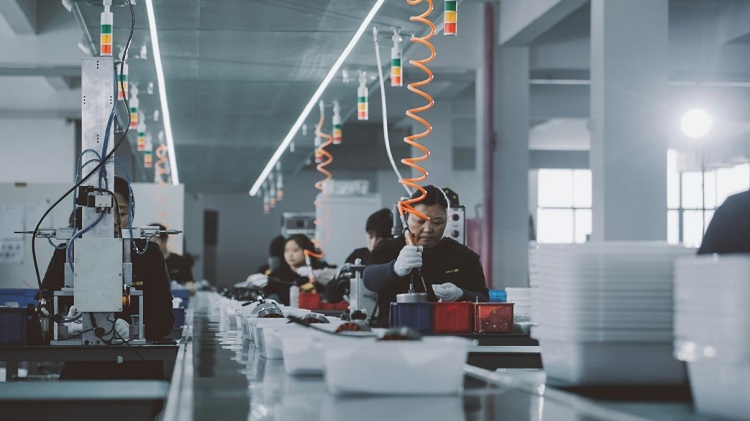Quality control (QC) is the foundation upon which modern manufacturing thrives. It ensures consistency, reliability, and efficiency in the production of goods, reinforcing customer trust and brand reputation.
In an era of high consumer expectations and stringent regulatory requirements, businesses cannot afford to overlook the importance of quality control. Poor-quality products not only lead to financial losses but also damage credibility, sometimes beyond repair.
Implementing rigorous quality control measures helps companies minimize defects, enhance operational efficiency, and maintain compliance with industry standards.
This article explores how quality control is essential in various industries, the strategies companies employ, and the broader impact it has on global supply chains.
Table of Contents
Ensuring Product Excellence in the Wellness Industry
The wellness industry is one of the most quality-sensitive sectors in modern manufacturing. Consumers expect high standards from wellness companies, as their products directly affect health and well-being.
Strict quality control measures are implemented at every stage, from raw material selection to final product testing. Many wellness brands adopt rigorous testing protocols, including third-party certification and compliance with regulatory bodies.
One prime example of a wellness company that prioritizes quality control is Melaleuca. If you’re wondering who owns the wellness company, it’s Frank VanderSloot. He established Melaleuca on the premise of promoting wellness in people. Companies like this invest heavily in research and development, ensuring that their products meet both industry standards and consumer expectations. By maintaining strict control over their supply chains, they minimize risks related to contamination, mislabeling, and product inefficacy.
The Role of Quality Control in Automotive Manufacturing
The automotive industry relies on precision, durability, and safety. A single defective component can compromise an entire vehicle, leading to recalls, legal liabilities, and reputational damage. To avoid such risks, manufacturers implement rigorous quality control protocols at every production stage.
Modern automotive quality control involves a combination of manual inspections and automated testing. Advanced technologies, such as artificial intelligence (AI) and machine learning, help detect defects in real time, reducing the chances of faulty vehicles reaching the market. Additionally, regulatory bodies enforce strict compliance standards, pushing manufacturers to continuously enhance their quality assurance processes.
Supply chain management is also a critical aspect of quality control in the automotive sector. Components are sourced from various suppliers, and even a minor inconsistency can lead to large-scale manufacturing issues.
Quality Control in Electronics and Consumer Goods
In the electronics industry, reliability and performance are crucial. Consumers expect durable products that function seamlessly. A minor flaw in an electronic component can result in product failure, leading to customer dissatisfaction and financial losses. As a result, electronics manufacturers invest heavily in quality control measures, incorporating multiple layers of testing.
Automated inspection systems are widely used in this sector, allowing manufacturers to detect even the slightest deviations in product specifications. Quality control teams conduct stress tests, temperature assessments, and performance evaluations to ensure that devices can withstand various conditions. Furthermore, regulatory compliance plays a major role, as electronic products must meet specific safety and efficiency standards before reaching consumers.
Food and Beverage Industry: Safety Through Quality Control
Food safety is one of the most critical aspects of quality control in modern manufacturing. Consumers trust brands to deliver safe, nutritious, and properly labeled products. Any lapse in quality control can lead to foodborne illnesses, product recalls, and legal consequences.
Food and beverage manufacturers follow strict quality control measures, including raw material testing, hygiene protocols, and microbial analysis. Many companies implement Hazard Analysis and Critical Control Points (HACCP) systems to identify and eliminate potential contamination risks during production.
Packaging also plays a crucial role in quality control. Improper packaging can lead to spoilage or contamination, compromising consumer safety. To mitigate these risks, manufacturers use advanced sealing techniques, tamper-evident packaging, and shelf-life testing.
Pharmaceutical Industry: The Most Stringent Quality Control Standards
Among all industries, pharmaceuticals have the most stringent quality control requirements. Medications and healthcare products must meet precise formulations and purity standards. Any deviation can lead to serious health consequences, making quality control a top priority.
Pharmaceutical manufacturers implement multiple layers of quality assurance, from sourcing raw ingredients to final product distribution. Regulatory bodies, such as the FDA, impose strict guidelines to ensure that medications are safe and effective. Companies conduct extensive testing, including chemical analysis, stability studies, and bioavailability assessments.
In addition to in-house quality control, third-party testing is common in the pharmaceutical industry. Independent laboratories verify product safety and efficacy, adding an extra layer of assurance for consumers.
The Impact of Quality Control on Global Supply Chains
Quality control is not just about individual products—it has a far-reaching impact on global supply chains. In today’s interconnected world, manufacturers rely on international suppliers and logistics networks. A defect in one part of the chain can disrupt entire production processes, leading to financial losses and operational setbacks.
To mitigate these risks, companies implement strict supplier quality control programs. Regular audits, material testing, and compliance checks help ensure that raw materials meet required standards before entering the production process. Manufacturers also invest in real-time monitoring systems to track quality metrics across multiple locations.
With the rise of Industry 4.0, digital technologies play an essential role in supply chain quality control. Automated inspection systems, blockchain tracking, and AI-driven analytics provide real-time insights, allowing manufacturers to detect and resolve quality issues before they escalate.
All in all, quality control is the backbone of modern manufacturing, ensuring that products meet high standards of safety, performance, and reliability. From wellness companies and automotive manufacturers to the food, electronics, and pharmaceutical industries, every sector depends on rigorous quality assurance measures to maintain consumer trust and regulatory compliance.
With evolving technologies and stricter industry regulations, quality control will continue to shape the future of manufacturing. Businesses that prioritize quality not only enhance their reputation but also secure long-term success in an increasingly competitive market.

